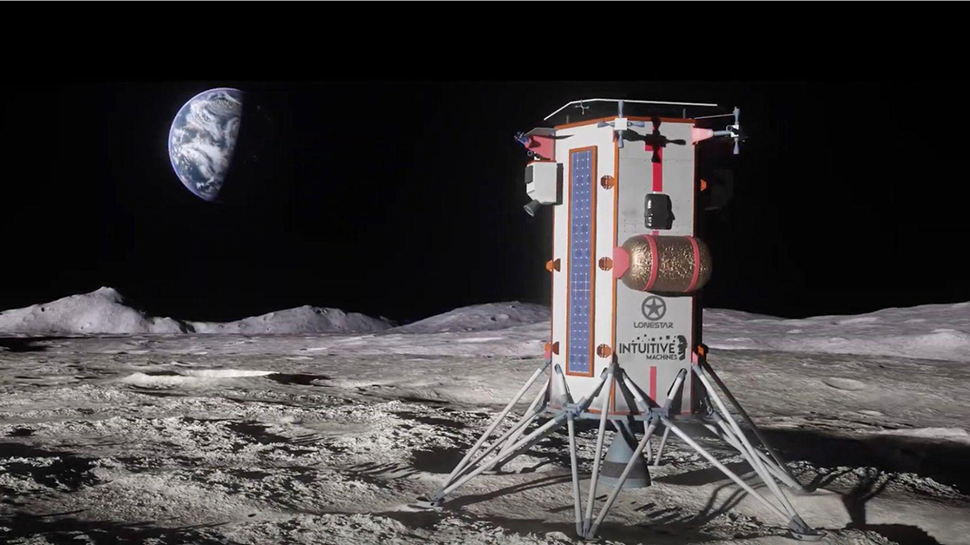This startup wants to back up your data on the Moon in a 'data center' that could probably sit in the palm of your hand
Lonestar ultimately wants to offer a range of off-world backup services

- Lonestar plans to offer disaster recovery services from the Moon
- It successfully tested a lunar software-defined data center in 2024
- Its next mission, launching soon, will test a physical data center (kind of)
We all know how important it is to back up our personal data in case of a disaster - I certainly learned that lesson the hard way years ago when a hard drive malfunctioned and fried my desktop PC. As devastating as that was for me personally, for businesses, the loss of data can be catastrophic, as while files and folders can be backed up in many ways, including to the cloud, offsite data centers, tape storage, and NAS, some solutions take the idea to the extreme.
One such example is the Arctic World Archive (AWA), which stores data-filled containers inside a sealed chamber within a decommissioned coal mine in Svalbard, between mainland Norway and the North Pole. If that isn’t safe and remote enough for you, well, there’s always space.
Florida-based Lonestar Data Holdings was founded by Chris Stott in 2021 to provide data services such as Disaster Recovery and Resilience-as-a-Service from Earth’s ultimate backup location - the Moon.
A RISC-V venture
Lonestar successfully tested the world’s first software-defined data center on the International Space Station (ISS) in 2021 and 2022, then conducted a full data storage test from the Moon's surface last year.
Working with its lunar access provider, Intuitive Machines, Lonestar completed its first mission to the Moon (called "Independence") with a proof-of-concept demonstration after the IM-1 Odysseus Nova-C lander touched down on the lunar south pole last February. It wasn’t a complete success, as the vehicle ended up on its side.
Lonestar’s next mission, again with Intuitive Machines (this one called "Freedom"), will be a test of its first physical “data center” (a RISC-V processor with a Phison SSD running Ubuntu) sent off-planet. That mission is set to launch on February 26.
Writing about Lonestar, Blocks and Files says, “The Freedom IT unit has a 3D-printed casing designed by BiG, an architecture and design group led by Danish architect Bjarke Ingels. The exterior is said to ‘reflect the silhouettes of NASA astronauts Charlie Duke (Apollo Moonwalker) and Nicole Stott (Space Station Space Walker).’
Are you a pro? Subscribe to our newsletter
Sign up to the TechRadar Pro newsletter to get all the top news, opinion, features and guidance your business needs to succeed!
It is somewhat unexpected that a small computer system in a lunar landing vehicle would have resources devoted to a casing that, once enclosed in the Athena vehicle and loaded into the SpaceX launch rocket, will never be seen again. Presumably, Lonestar wants to capture people’s imagination with the idea.” As far as marketing stunts go, it’s a good one.
Assuming everything goes to plan, Lonestar hopes to begin continuous commercial services in 2026.
You might also like
- These are the best cloud backup services you can get now
- And these are the best cloud storage services available
- A video of GitHub's extraordinary deep-freeze archiving project has emerged

Wayne Williams is a freelancer writing news for TechRadar Pro. He has been writing about computers, technology, and the web for 30 years. In that time he wrote for most of the UK’s PC magazines, and launched, edited and published a number of them too.
You must confirm your public display name before commenting
Please logout and then login again, you will then be prompted to enter your display name.